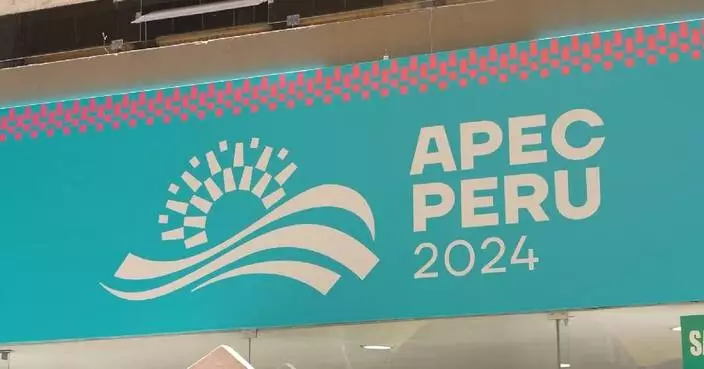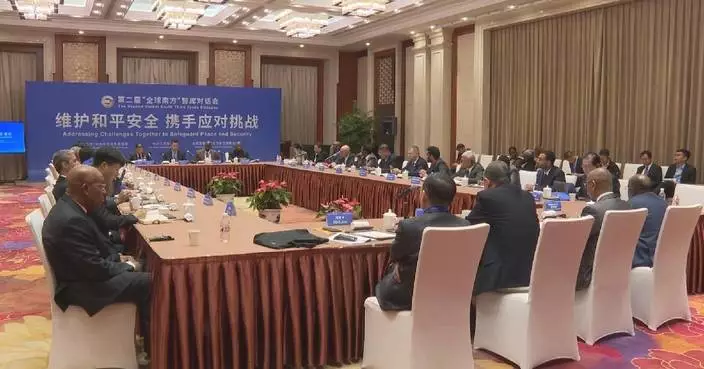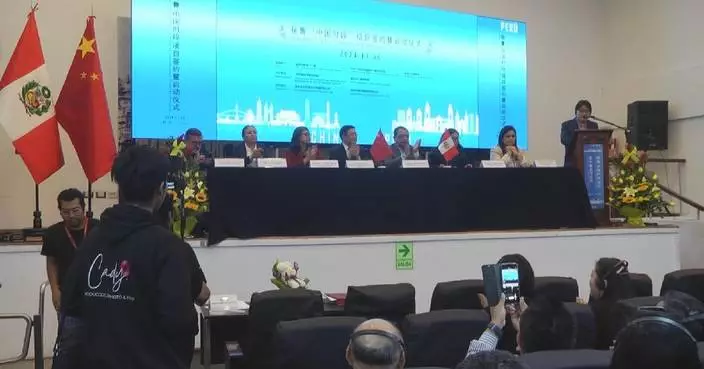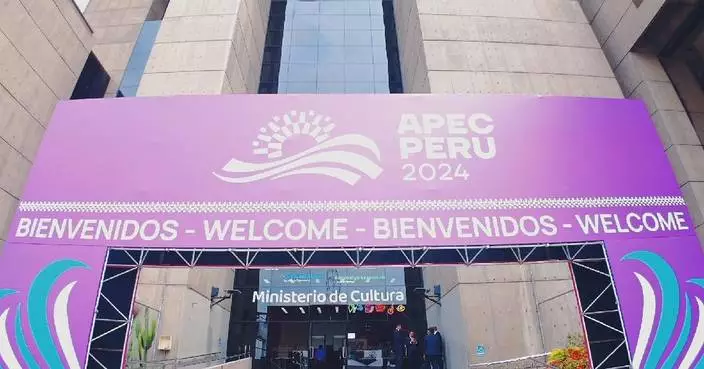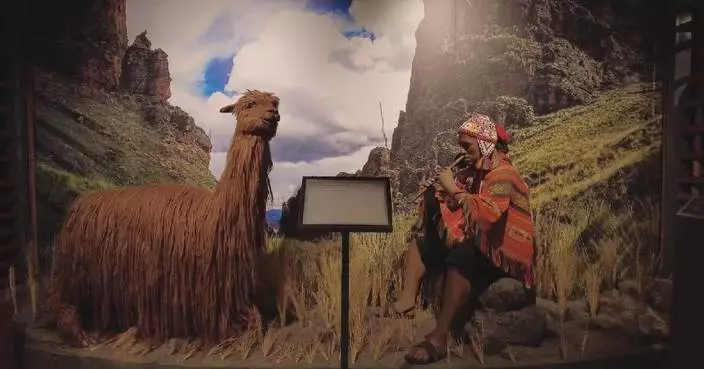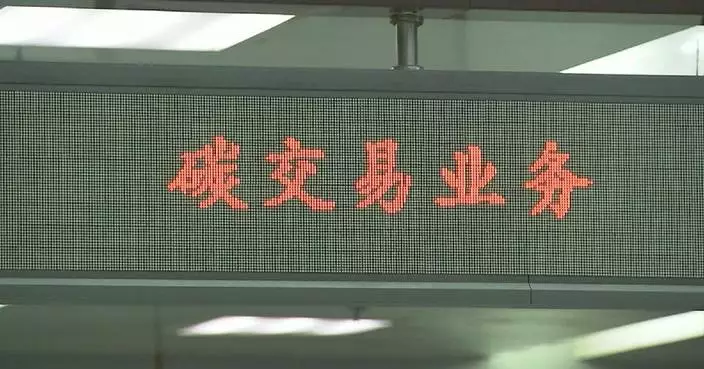French spirit company Remy Cointreau has been active in latching onto trends in the Chinese market, with the just-concluded seventh China International Import Expo (CIIE) serving as a platform to launch its latest products, said the company's CEO Eric Vallat.
During a recent interview with China Global Television Network (CGTN), Vallat highlighted the company's observation that young people in China are beginning to value quality over quantity in their drinking habits.
"I strongly believe that nowadays, the trend of the future is about drinking less but better. This is calling for quality. It also means people are more demanding. I think the younger clients, they are interested in whiskeys, so we have a brand there which is Bruichladdich, where we launched new products which we believe are targeting this clientele who are looking for more specific products," said the CEO. Sustainability has been consistently significant for Remy Cointreau. In 2023, the company opened a wine and cocktail lounge in Shanghai, dubbed Dentree -- the group's first sustainability concept bar globally.
According to Vallat, the opening can be also seen as a symbol of commitment to consistently building closer commercial and cultural relations with Chinese market.
"The idea of Dentree, to be honest, it came from China, which is interesting because we worked very hard on sustainability in our vineyard. Because Shanghai is an affluent city, open to new trends, cosmopolitan, very dynamic and energetic. So we felt it's a good location for the Dentree. That's interesting that it's an initiative that came from China. But also, I believe that being productive, being successful with good profitability can go with strong sustainability, because I believe that our clients in the future, they will pay more and more attention to sustainability," he said.
The seventh CIIE saw the signing of tentative deals worth over 80 billion U.S. dollars for one-year purchases of goods and services, a 2-percent-increase over last year's CIIE. The area booked for the next CIIE exhibition zone exceeded 100,000 square meters.
The CIIE is held annually at the National Exhibition and Convention Center in Shanghai. Since its first edition in 2018, this expo has become an important stage spotlighting China's new development paradigm, a platform for high-level opening up and a public good for the whole world.

French spirit company eager to raise the bar in China amid new liquor trends
A road which is being constructed by a Chinese contractor in the mountains of Peru is expected to promote economic development in Huanuco province, which is located about 350 kilometers away from the Peruvian capital Lima.
Huanuco is surrounded by the towering Andes mountain range, with altitudes averaging over 4,000 meters, and its poor road infrastructure has posed significant challenges to travelers and to farmers when they want to ship their potatoes, corn and other produce to customers in other locations.
To mitigate these challenges, construction work began in 2019 on the Andes National Road project, also known as the Carretera Huanuco-La Union-Huallanca road project.
Located in the central and western regions of Peru, the 236.63-kilometer road is the country's largest infrastructure project under construction, and is expected to take 11-12 years to complete.
It is estimated to halve travel time for about 270,000 people in 243 towns along the road.
"I am a farmer. I have grown potatoes all my life. We tried to sell Huanuco products to Lima. Because there were only paths, it was difficult to get there. People had to travel for hours. But now, it has shortened the time," said Adalberto Vela, a potato farmer in Huanuco.
"In fact, it will lower the cost of products and it will be easier to transport the products to the capital," said Gonzalo Prado, a truck driver.
"From the point of view of transport in Peru, it was necessary, because it is part of the national highway system. This makes it easier and better for producers in the mountainous areas to profit more from their products," said Luis Cordoba, the director of the engineering department at the national highways bureau under the Ministry of Transport and Communications.
While trying to maximize the economic advantages of the new road, China Railway 20th Bureau Group Corporation Limited (CR20G), which is responsible for building the Andes National Road project, also works hard to protect the local environment.
This part of the Andes features a complex and diverse climate and a fragile ecological environment characterized by native forests along the route of the road.
To balance the requirements of heavy infrastructure work and a delicate environment, CR20G workers plant trees while building the road. The work team also includes experts specializing in environment, forest, safety, and community development. Nurseries have been established at different altitudes for different plants, and specialists teach forest protection knowledge to tens of thousands of residents along the road, and train forestry technicians.
"We are about to plant 40,000 trees. They are purely native species," said Luis Avila, a forest engineer.
"I look forward to the completion of the Andes national highway. Our construction team will deliver to the Peruvian people not only a high-quality expressway, but also a road surrounded by lush landscape, which is the best proof of Chinese companies' practice of biodiversity conservation. In my opinion, this road will be a road to poverty alleviation, a road that combines development and ecology, and a road of friendship between China and Peru," said Chen Jingfang, the executive manager of CR20G's Peru Branch.

Chinese-built road to promote economic, environmental development in Peru




